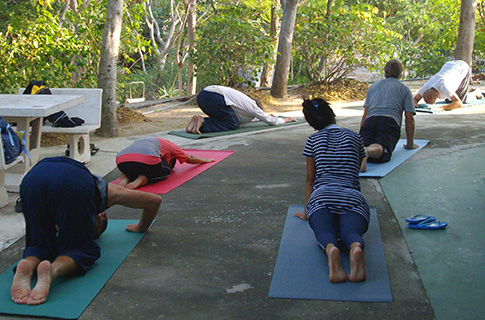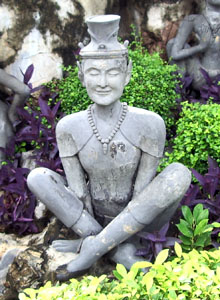This text is a modified excerpt from an article I have presented as part of my yoga teacher training at the Vivekananda ashram near Bangalore, India in the year 2000.
[...] in the text indicate that more details are given in the free pdf-version. Please find the download link at the bottom of this page.


